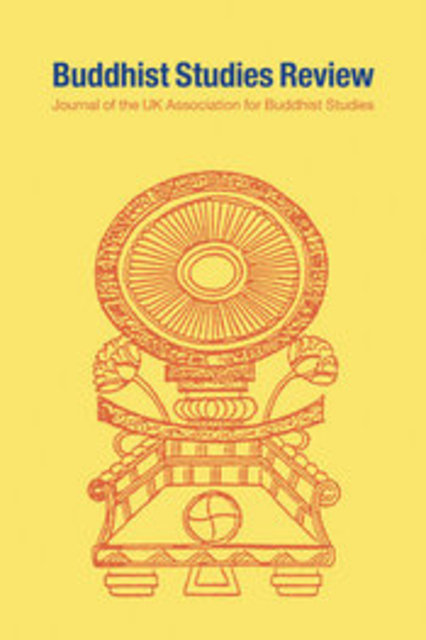Anti-Catholicism and Protestant Reformism in the History of Western Imagery of the Buddhist Monk: Some Roots of the Modernist Monk

Full description
From the late nineteenth century onwards, Asian Buddhist monks have been associated in American thought with science, rationality and anti-colonialism. Though the narrative of nineteenth century ‘Buddhist Modernism’ is routinely invoked to explain this, a more illuminating genealogy of this ‘modernist monasticism’ identifies deeper roots in anti-Catholicism. This paper explores these roots through a genealogy of the Buddhist Modernist Monk. Beginning with the seventeenth century travel journals of Jesuit missionaries, it winds its way through varied British rhetorics to nineteenth century Sri Lanka, and ends in Chicago, at the World’s Parliament of Religion of 1893. There, these intertwined discourses coalesced in the form of the Buddhist Modernist Monk: a figure now familiar and beloved in American culture as an embodiment of compassion and rationality, yet with a history of prejudice and politics that has yet to be meaningfully explored. As we acknowledge anti-Catholicism’s centrality to the history of the Modernist Monk, we are necessarily reminded of the moral ambivalence of the ‘science-religion’ dichotomy that fuels his mystique. At minimum, future analyses must critique the presumption of such supra-historical binaries, and deploy an open framework attentive to the contradictions and relations of reciprocal determination that characterize his genealogy.
- typeImage
- created on
- file formatjpg
- file size38 KB
- container titleBuddhist Studies Review
- creatorLaura Harrington
- issn1747-9681 (online)
- issue28.2
- publisherEquinox Publishing Ltd.
- publisher placeSheffield, United Kingdom
- doi
We use cookies to analyze our traffic. Please decide if you are willing to accept cookies from our website. You can change this setting anytime in Privacy Settings.
